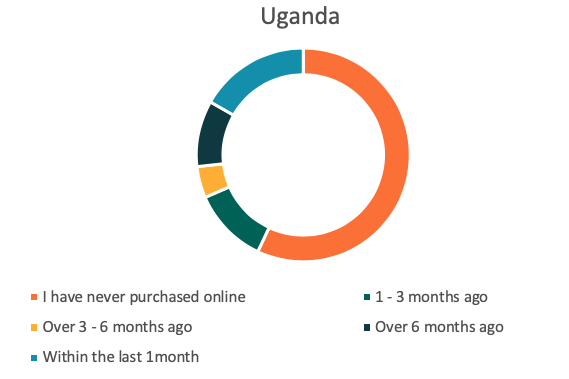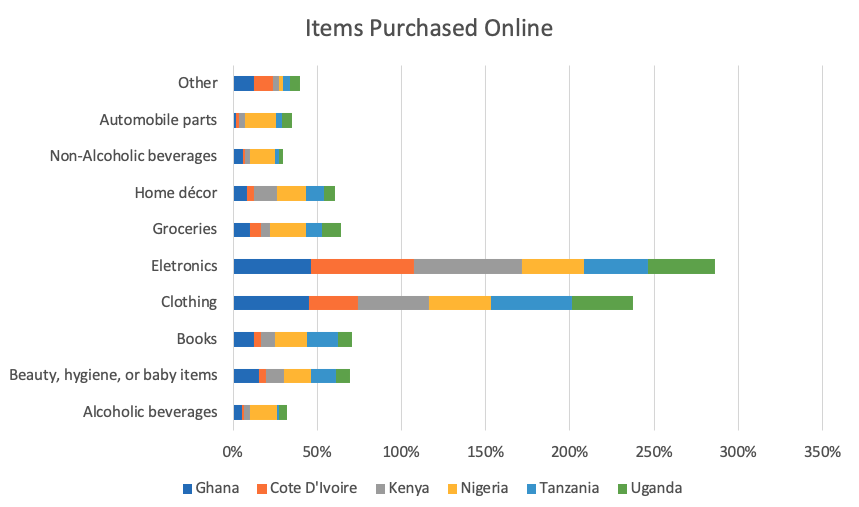My Life In Tech is putting human faces to some of the innovative startups, investments and policy formations driving the technology sector across Africa.
Jessica Anuna’s Klasha wants to bring the global fashion industry to the African continent with ease and convenience. Although starting out as a fashion e-commerce company, Klasha is now building technology integrations that will allow African consumers shop and ship fashion items directly from global retailers and fast fashion brands.
If you live in any part of the continent and want to buy, say, a shirt directly from fashion retailer H&M, there are a number of ways to go about your purchase none of which involves placing an order on the retailer’s website and having it delivered to your address in Lagos, Nairobi or Accra (H&M has stores in four African countries: South Africa, Egypt, Tunisia, Morocco).
You can go the route of a professional shopper or find a distant relative who agrees to make space in their luggage. You could also go the route of a freight forwarding company. All processes are cumbersome and not at all the idea behind e-commerce which centers convenience and speed in transactions. But this is only the logistics. Paying for orders could be twice as problematic and more often than not, your local bank debit cards will not suffice. When your forex card options work, they often come with spending caps that could interfere with your purchase.
Klasha, launched in 2018 by Jessica Anuna, is looking to solve these issues for African consumers interested in purchasing items directly from global fashion retailers. With experience working at Amazon, Net-a-Porter and Shopify in the United Kingdom where she grew up, Anuna started her first logistics business in China. Called Restock China, the company exported FMCGs from China to the United Kingdom and the Americas for big wholesalers, fast fashion brands and general suppliers. In 2017, Anuna returned to Nigeria in hopes of expanding RestockChina but met a longstanding problem.
“When I got on the ground in Nigeria I saw that there was a big issue here: the e-commerce infrastructure was underdeveloped,” she tells TechCabal.
“Speaking in terms of fashion, I couldn’t find any retailer online that could deliver within 3-5 days and that would allow me pay online in any African currency and I thought that was a big problem.”
Klasha started out operating as a B2C fashion retailer but in 2019 began creating payments and logistics technology infrastructure to help African consumers shop directly from global fashion retailers. By integrating its payment API system, Klasha Checkout, into the online commerce stores of these fast fashion brands, consumers anywhere on the continent will be able to purchase items and pay in their local currencies whatever that may be.
“Right now, we are focusing on the Nigerian naira, Ghanain cedi and the Kenyan shilling but eventually we hope to expand to all 41 African currencies and help consumers on the continent pay seamlessly online regardless of where they are and where the retailers are based,” says Anuna.
“So in theory, you should be able to go on hm.com, click Pay with Klasha at checkout and your card should be able to work seamlessly to make that transaction.”
Earlier e-commerce players like Jumia and Konga came into a market that was otherwise undiscovered and sought to develop an online shopping culture and infrastructure at great losses to their investors. It meant figuring out payments with solutions like JumiaPay and logistics bottlenecks with solutions like Konga Xpress.
In 2016 when Jumia first introduced JumiaPay in Nigeria, its largest market, Co-CEO Jeremy Hodara said the payments solution was going to go further in “providing a safe, a secure and a convenient shopping experience to our customers, building trust along the way between us, our thousands of sellers and our millions of customers.”
While online/mobile money payments have taken off in countries like Kenya, in most parts of the continent, low trust in the security of online transactions and the prevalence of failed card transactions means that consumers are still inclined to opt for services that allow them to pay cash on delivery of their items, a hindrance to shopping from more established e-commerce markets.
The flipside of this coin is in logistics. For a fashion item on DHL’s Africa e-Shop which allows african consumers to shop directly from global brands and have it shipped to their doorsteps, deliveries can take up to two weeks and incur duties and taxes. Anuna says Klasha’s logistics solution Klasha Cargo has developed extensive courier networks from the UK, US, Middle East into Africa cutting down that timeline by a week.
“We’ve really spent a lot of time ironing out what that logistics looks like and where we can reduce the pain points in terms of the days spent in customs or in transit,” she says.
Asides the lengths of time a delivery could take are also concerns about customs charges.
“On the ground in Nigeria, you’re not supposed to pay customs on any package under $250. We know that and we ensure that customers who have orders under this amount aren’t charged any customs fees,” Anuna says.
In 2019, the Nigeria Customs Service introduced a duty fee on personal imported orders above $100 describing them as “luxury and dutiable”. Oftentimes, these charges which are equivalent to about 20% duty plus a 5% VAT, are not known to customers until after their orders are placed. When they are not promptly received from the customs after they arrive in the country, demurrage begins to accrue after eight days.
Anuna says this is also one of the things Klasha Cargo will make seamless, the ability to calculate and convey estimates at checkout so consumers are aware while making their orders what to expect of duty charges.
Payments and logistics may be two very critical challenges yet to be solved in Africa’s e-commerce industry but they are certainly not all. Trust, data affordability and access, meeting consumer expectations in terms of quality, are all still challenges most players continue to grapple with.
Klasha comprises a team with domain expertise in fintech, e-commerce and logistics, Anuna says, members who understand what these challenges are within the context of the continent and are committed to solving them. This year, ex-Andelan Kemi Oritsejafor joined the company as co-founder and VP of Global Partnerships. Other team members include ex Jumia and Microsoft staff among others.
“I hire people who are ten times smarter than me and who have had experience at e-commerce companies on the ground in Nigeria because they understand the struggle that consumers are facing on a day to day basis,” Anuna says.
She and Oritsejafor met around 2016/2017 when the former contacted Andela to help build the Klasha platform.
“We kept in touch for a year after that,” Anuna says, “The value she brings is really her sales experience and understanding not only what merchants need from us but also what the consumers need on the ground in order to have a successful end-to-end e-commerce experience.”
Klasha has received a seed fund from TechStars Dubai accelerator and went on to raise its first round of funding in 2018 from Ginco Investments and a global angel investor network focused on Africa and the Middle East. It is currently raising a second round of funds which Anuna says will close in the first quarter in 2021.
Creating e-commerce solutions for a pan-African market is challenging because online consumer behaviors differ as much as the infrastructure on ground in various countries.

While the infrastructure in Nigeria is still lacking in so many ways, Anuna says consumers here are more demanding. Rightfully so. As one of the most nomadic Black people, they are more in tune with how seamless and stress-free e-commerce experiences are and should be. With places like Kenya where you find a little more sophistication in terms of infrastructure and the amount of e-commerce players present, Anuna says things like logistics can be a lot less challenging.
The pandemic stirred a lot of changes in the e-commerce industry across the globe many of which will remain long after the year ends and as plans materialise for a coronavirus vaccine. For Klasha, Anuna says the period saw more international retailers asking to have the Klasha Checkout and Cargo features integrated into their platforms as they sought more sales outlets and geographic locations for their stock. As a continent, the fashion segment continues to take the bulk of online purchases coming second to electronics.

This year, more venture capital went into the e-commerce industry favouring essentials like food, healthcare supplies as well as clothing. Anuna says this has been encouraging for the team but also a wake up call to build a business that serves this bludgeoning phase of e-commerce across the continent.
“Listening is important because I’m also a student here on the ground,” Anuna says about how she approaches building Klasha.
“My team teaches me a lot about consumers’ needs and what we need to do to be successful.”
In the coming years, Anuna’s vision for Klasha is simple. Any African living in the continent should be able to shop directly from global fashion brands and pay in their local currency with ease as well as receive the item(s) conveniently.
“Our overall vision is to be the key gateway for any African trying to make purchases online. We really want to be the payment gateway for Africans to be able to transact on any platform outside the continent,” she says.
Intra-continental trade may also factor into this vision in the long term. On the merchant side, Anuna says Klasha is aiming to become a useful information bank providing relevant data insights into user behaviour to global fashion brands considering more direct and longstanding business with consumers on the continent.





















